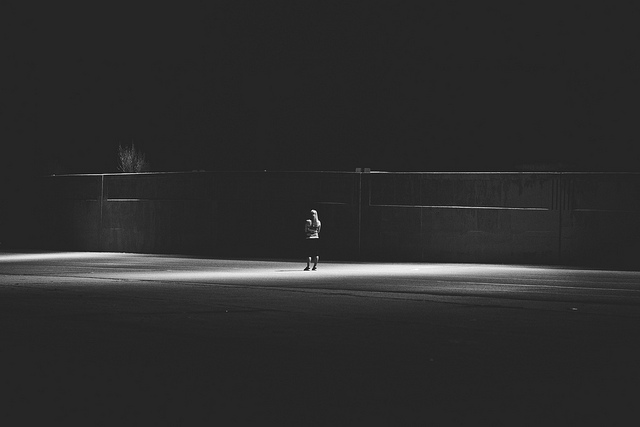
I am haunted by the photograph of Amber Heard sobbing in her car after leaving the courtroom where she was granted a restraining order against Johnny Depp. I see her hand in front of her open mouth, eyes squinted shut, cheeks shiny. She appears to be gasping. In the past week, the vision of Heard’s face has accompanied me through everything I have done. The photo hurts. I have cried those same tears.
I believe Heard. Her story is too familiar for me not to. I was not married to a celebrity, nor was I a supermodel. My abuser and I were decidedly average. Still, like Depp, my abuser was beloved by nearly everyone who knew him. My abuser was a man who was regarded as kind and gentle, who was always willing to help those in need, who listened more than he talked, who offered hugs freely, and who knew how to make everyone around him feel special.
We heard the same stuff when we left our own abusers. The narrative remains unchanged.
None of those characteristics kept him from hitting me, but they did keep other people from believing me.
In many ways, my abuser was more likable than I was, so when he was arrested for domestic battery, it was a shock to those who knew us both. I had carefully protected him—not out of some kind of ulterior motive, but out of love. Hope was a drug that kept me tethered to the man who hurt me. Hope was a drug that was hard to kick. I imagined that the moment that Heard was granted that restraining order, she had to give up hope that she could be with the man she loved.
This is why it is so difficult for me to observe the way the media and the American public are talking about Heard. Many of the things that have been said about her were also said about me. I am part of a community of survivors, and we are hurting. The things we are hearing—that she is manipulative and opportunistic, that she didn’t get along with his family, that she was the abusive one—hurt us because we have already heard it. We heard the same stuff when we left our own abusers. The narrative remains unchanged.
Time passes, wounds heal, and people move on, but some things never stop hurting. For me, and so many other survivors, being blamed for our abuse will never stop hurting.
I could list the other ways that my story resembles Heard’s. That, although my abuser was arrested, I did not want to press charges. That I was more interested in protecting him and our privacy than I was in protecting myself. That the police did not look for injuries when they first arrived at my home. That the police failed to recognize the extent of my suffering. That, although the police did eventually discover my injuries and had to arrest him, I never felt that they had any protective motivations. That there were far more incidents in the history of my marriage where the injuries were not visible. That bruises, so often, do not materialize until the next day. That the moment I left my abuser was not triumphant; rather, it was a moment of face contorting tears. That I, too, smiled in the days after I left, but not because I was happy. I smiled because, by then, I knew how to smile through suffering.
We need you to open your eyes. We need you to look at us.
There are many other resemblances that I could list, but I am no longer interested in asserting my legitimacy as a victim. Instead, I am interested in asserting my value as a human who deserves to believed, in asserting the value of all of us—the quarter of all women in the United States—who have experienced domestic violence.
There is a scene in the movie Room where the grandfather keeps his head turned away from his grandson. The grandfather cannot bear to look; he squints his eyes shut, so that he does not have to be a witness to that pain. The grandfather’s refusal to look is an act of cowardice. In order to bear witness, we must look. Bearing witness means acknowledging what has happened, that it is unequivocally wrong, and that it was not the victim’s fault. Bearing witness hurts, but is necessary. It is necessary for Heard, it is necessary for me, and it is necessary for the millions of other survivors of domestic violence in our country. We need you to open your eyes. We need you to look at us. I tell myself that, when you see us, things will change. I tell myself that, when you see us, you’ll finally believe us.

